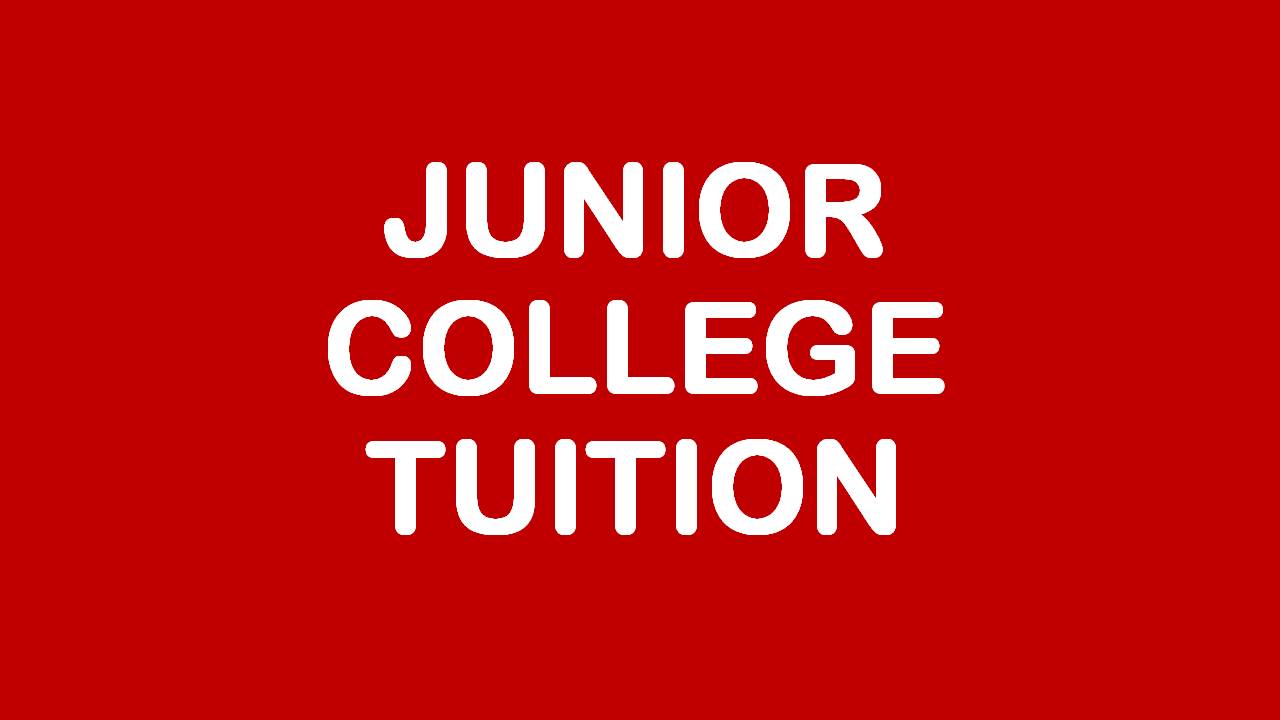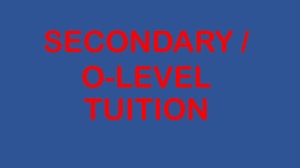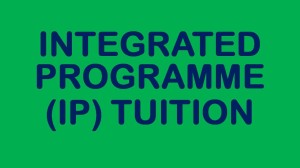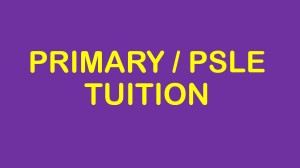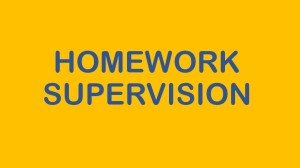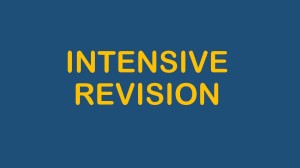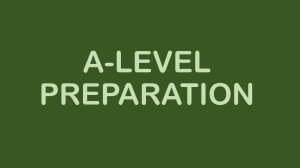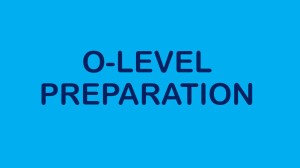Daniel, one of A. Math tutees, showed me his class test result yesterday: 34/40. The test was on Indices and Surds, Wow, excellent, I said to him. Daniel is from the N(A) stream, and usually fails his Math tests. That he could obtain 34/40 and top his class in just a few weeks of tuition was phenomenal. So I started reflecting on what went right, because there are many students, even those from top schools, who do not make such a giant leap in such a short amount of time.
So what was the major factor contributing to Daniel’s significant improvement? Well, it’s not some secret special technique. In fact, it’s a well-known technique that some students just don’t want to use – ask many, many questions, even “silly” ones, about the same topic until one is satisfied that understanding has been achieved. Daniel even questions me when he doesn’t understand the steps I show him, whereas many students simply copy or write down my solution. Daniel sometimes takes a while to process the information I give to him; he will pause and ponder, and then sheepishly asks a basic question. He will even ask questions periodically to affirm that his steps are correct.
Students need to make meaning out of what they hear or see; it’s not enough to just listen to teachers or observe what they do in class. And you make meaning when you have a dissonance in your mind; some pieces of the jigsaw puzzle don’t fit and you have the courage to ask and then ponder again.
Regarding asking questions, I have one advice though: you must attempt to answer your own questions first, for the struggle to answer your own questions will make it easier for you to understand another person’s explanation. : )
Good luck!
Rgds,
Ilyasa
Is metacognition part of the mathematics curriculum in Singapore?
One of the aims of mathematics education in schools in Singapore is to enable students to acquire thinking and problem solving skills and to make effective use of these skills to formulate and solve problems (MOE, 2007).
The existing curriculum framework for mathematics designed by the Ministry of Education (MOE) lists metacognition as one of the components on which the development of mathematical problem solving ability depends.
According to the MOE (2007), metacognition can be defined as the realization of, and the ability to regulate one’s thinking processes, in particular the choosing and application of problem-solving strategies. The MOE believes that it is important to provide students with metacognitive experience in order to help them develop their problem solving abilities.
Note: The above paragraphs are adapted from my minor research paper, Examining Supports for Metacognition in Singaporean Lower Secondary Mathematics Textbooks, NIE, 2011. All rights reserved.
Related links:
(1) Metacognition – The secret to learning and problem-solving;
(2) Metacognition and problem-solving;
(3) Metacognition enhances learning;
_______________________________________
TUITION CLASSES:
_______________________________________________________________
EDUCATIONAL SERVICES:
______________________________________________________________
By EX-MOE TEACHERS & EXPERIENCED TUTORS
@ BLK 644, BUKIT BATOK CENTRAL, #01-68. S(650644).
CALL 65694897 OR SMS 98530744 OR 97860411.
Metacognition enhances learning
Various studies have revealed that metacognition helps to enrich students’ learning in different domains. For example, it has the potential to increase students’ capacities for independent learning (Ganz & Ganz, 1990).
Research also shows that knowledge of metacognition, such as being familiar with one’s strengths and weaknesses and searching for ways to overcome the latter, contributes to more effective learning (Bransford, Brown, & Cocking, 1999). Research also suggests that metacognition improves one’s chances of success when it comes to completing activities that rely heavily on thinking processes (Garner & Alexander, 1989; Pressley & Ghatala, 1990).
Many studies in metacognition have concluded that those who have advanced metacognitive abilities are more adaptable and steadfast in problem solving (e.g., see Artzt & Armour-Thomas, 1992; Swanson, 1990). Studies have also shown that one’s ability to plan and monitor a problem-solving process requires several metacognitive skills such as regulation and evaluation of thought processes (Mayer, 1999), and the use of metacognitive skills has the potential to identify the more able students from the less able ones (Pellegrino, Chudowsky & Glaser, 2001).
In addition, research has shown that one’s individual and group learning skills can be improved through the acquisition of metacognitive competencies (White & Frederiksen, 2005). Recent studies have also revealed that students who often fail to choose appropriate strategies, monitor or regulate their work, or articulate their thought processes are more likely to perform poorly in mathematics (e.g., see Lucangeli & Cabrele, 2006; Carlson & Bloom, 2005).
Note: The above paragraphs are adapted from my minor research paper, Examining Supports for Metacognition in Singaporean Lower Secondary Mathematics Textbooks, NIE, 2011. All rights reserved.
Related links:
(1) Metacognition – The secret to learning and problem-solving;
(2) Metacognition and problem-solving;
(3) Is Metacognition part of the Singapore Math curriculum?
_______________________________________
TUITION CLASSES:
_______________________________________________________________
EDUCATIONAL SERVICES:
______________________________________________________________
By EX-MOE TEACHERS & EXPERIENCED TUTORS
@ BLK 644, BUKIT BATOK CENTRAL, #01-68. S(650644).
CALL 65694897 OR SMS 98530744 OR 97860411.
Metacognition and mathematical problem solving
Metacognition is a crucial element in problem-solving, which is itself a key component in mathematics learning. To monitor and regulate one’s cognitive processes in problem-solving, Polya (1945) describes a four-step method: first, one has to comprehend the problem by sub-dividing it into more manageable parts and recognize any given data, conditions and variables to be found; second, one devises or selects a strategy to find the connections between the known data and the unknowns to be found; third, one executes the plan, scanning, regulating and examining each step; and, finally, after obtaining the solution, one evaluates the results which may involve re-visiting the previously taken steps.
Building on Polya’s work, Schoenfeld (1987) describes effective mathematical problem-solving as being contingent on how one uses four types of knowledge/skills: (1) resource knowledge, which is knowledge about one’s abilities and cognitive processes including knowledge of how to perform tasks or procedures; (2) heuristics, which are specific problem-solving methods or strategies; (3) regulatory processes, which includes the organisation and selection of resources and strategies; and (4) beliefs, which includes perceptions of and assumptions about mathematics (Gama, 2004).
Note: The above paragraphs are adapted from my minor research paper, Examining Supports for Metacognition in Singaporean Lower Secondary Mathematics Textbooks, NIE, 2011. All rights reserved.
Related links:
(1) Metacognition – The secret to learning and problem-solving;
(2) Metacognition enhances learning;
(3) Is Metacognition part of the Singapore Math curriculum?
_______________________________________
TUITION CLASSES:
_______________________________________________________________
EDUCATIONAL SERVICES:
______________________________________________________________
By EX-MOE TEACHERS & EXPERIENCED TUTORS
@ BLK 644, BUKIT BATOK CENTRAL, #01-68. S(650644).
CALL 65694897 OR SMS 98530744 OR 97860411.
Metacognition – The ‘secret’ to learning and problem-solving …
You don’t have to be ‘good in English but bad in Math’, or ‘good in Science but lousy in History or Literature’, or ‘good in Chinese but lousy in English’. It doesn’t have to be a one-or-the-other kind of thing. Every subject has its own way of learning and thinking about, but you can only discover it if you bring yourself one level up – think about the thinking itself, and think about how you learn. You can only learn how to learn if you think about learning. You can only learn how to think if you think about thinking.
Thinking about thinking has another name: metacognition, which formed the basis of my minor research work completed in 2011 at the NIE. A lot of research into metacognition centers around mathematical problem-solving, although metacognition can be applied equally well to other subjects. So for the purpose of illustration here, I will use math as the basis for our discussion about metacognition.
What is Metacognition?
In its simplest form, metacognition can be described as thinking about thinking (Wellman, 1985). Flavell (1976) has stated some examples of what constitutes metacognition:
I am engaging in metacognition if I notice that I am having more trouble learning A than B; if it strikes me that I should double-check C before accepting it as a fact; (…)if I become aware that I am not sure what the experimenter really wants me to do; if I sense I had better make a note of D because I may forget I; if I think to ask someone about E to see if I have it right. (p. 232).
The above sounds familiar, doesn’t it? Yes, you may have been practising metacognition sub-consciously, all your life, without realising it has a formal name, or without realising how important it is to learning and thinking.
Research in metacognition has examined various forms of cognitive processes by building on Flavell’s initial notion of metacognition as the monitoring, regulation and arrangement of thinking processes to achieve specified goals (Gama, 2004).
For example, Brown (1987) argues that metacognition consists of two components: knowledge of cognition, and regulation of cognition. The former involves being aware of one’s cognitive abilities through self-reflection while the latter pertains to mental activities such as monitoring and controlling one’s thinking processes in the course of learning or problem-solving. According to Brown, although these two types of metacognition are distinct from one another, they are usually used together in the same cognitive process as one type often utilises the service of the other (Gama, 2004).
Note: The above paragraphs are adapted from my minor research paper, Examining Supports for Metacognition in Singaporean Lower Secondary Mathematics Textbooks, NIE, 2011. All rights reserved.
Related links:
(1) Metacognition and problem-solving;
(2) Metacognition enhances learning;
(3) Is Metacognition part of the Singapore Math curriculum?
TUITION CLASSES:
_______________________________________________________________
EDUCATIONAL SERVICES:
______________________________________________________________
By EX-MOE TEACHERS & EXPERIENCED TUTORS
@ BLK 644, BUKIT BATOK CENTRAL, #01-68. S(650644).
CALL 65694897 OR SMS 98530744 OR 97860411.
